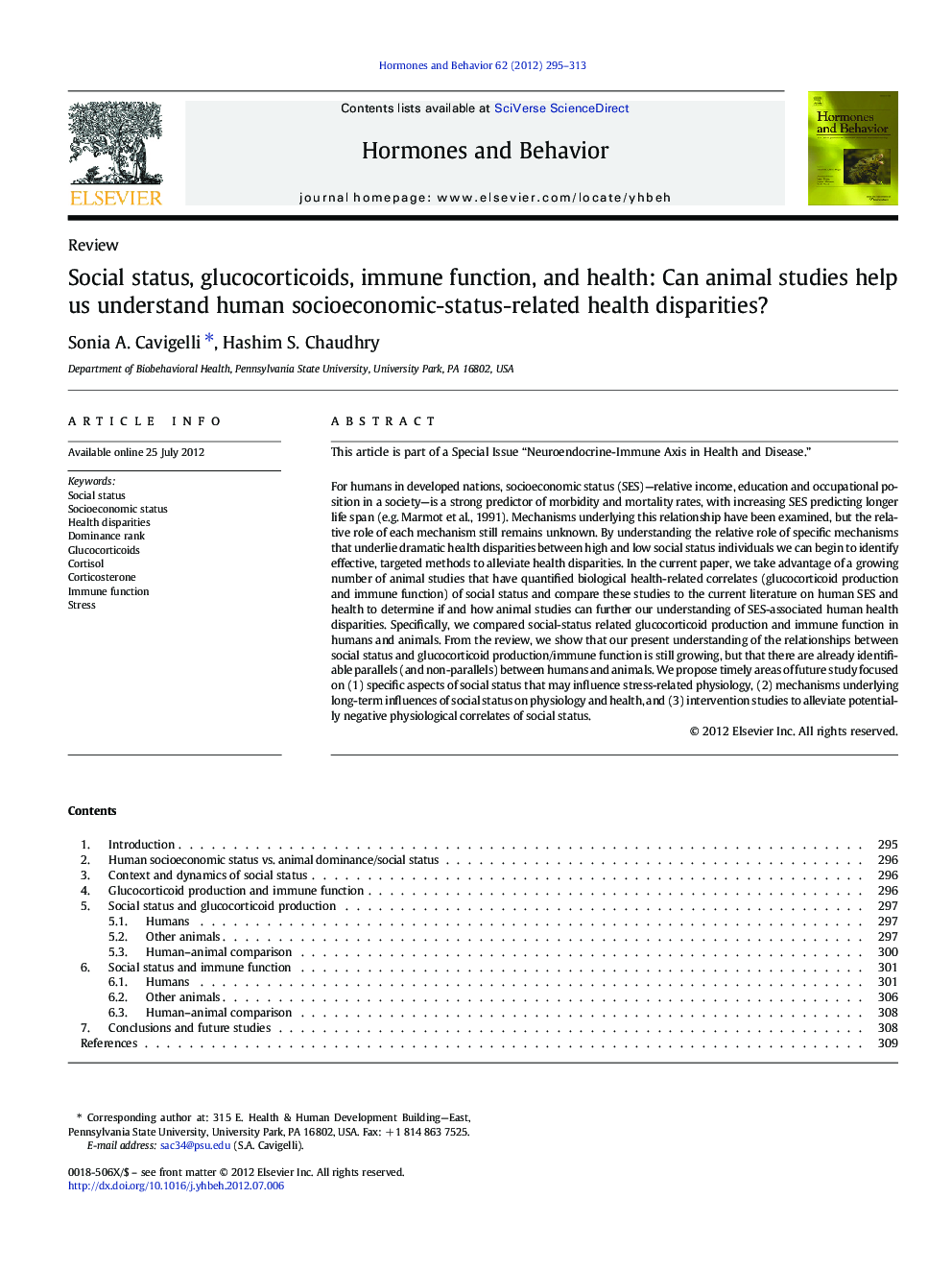| کد مقاله | کد نشریه | سال انتشار | مقاله انگلیسی | نسخه تمام متن |
|---|---|---|---|---|
| 323106 | 540502 | 2012 | 19 صفحه PDF | دانلود رایگان |

This article is part of a Special Issue “Neuroendocrine-Immune Axis in Health and Disease.”For humans in developed nations, socioeconomic status (SES)—relative income, education and occupational position in a society—is a strong predictor of morbidity and mortality rates, with increasing SES predicting longer life span (e.g. Marmot et al., 1991). Mechanisms underlying this relationship have been examined, but the relative role of each mechanism still remains unknown. By understanding the relative role of specific mechanisms that underlie dramatic health disparities between high and low social status individuals we can begin to identify effective, targeted methods to alleviate health disparities. In the current paper, we take advantage of a growing number of animal studies that have quantified biological health-related correlates (glucocorticoid production and immune function) of social status and compare these studies to the current literature on human SES and health to determine if and how animal studies can further our understanding of SES-associated human health disparities. Specifically, we compared social-status related glucocorticoid production and immune function in humans and animals. From the review, we show that our present understanding of the relationships between social status and glucocorticoid production/immune function is still growing, but that there are already identifiable parallels (and non-parallels) between humans and animals. We propose timely areas of future study focused on (1) specific aspects of social status that may influence stress-related physiology, (2) mechanisms underlying long-term influences of social status on physiology and health, and (3) intervention studies to alleviate potentially negative physiological correlates of social status.
► Social status is associated with stress physiology and health in both humans and other animals.
► Immune function is related to social status in a similar fashion in both humans and animals.
► Social animals provide a means to experimentally study biological mechanisms that may underlie human health disparities.
Journal: Hormones and Behavior - Volume 62, Issue 3, August 2012, Pages 295–313